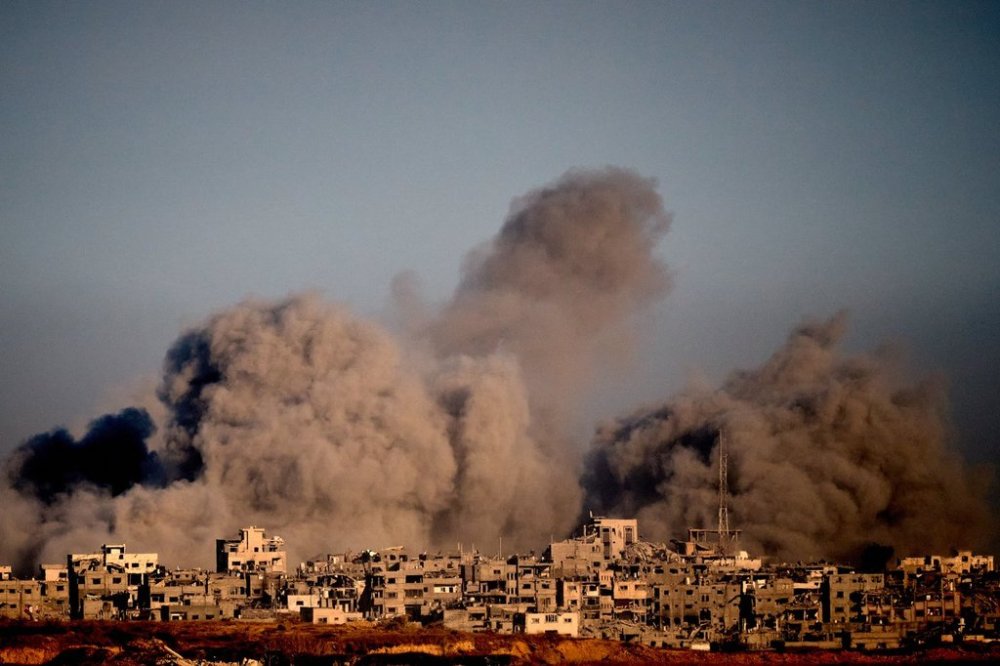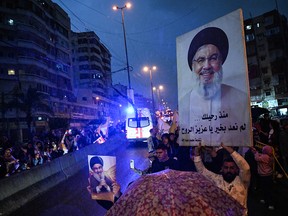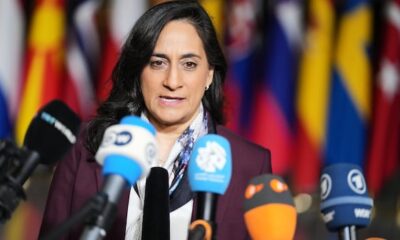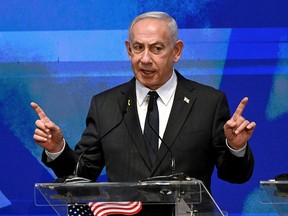World
U.S. Officials Join Israel-Hamas Peace Talks in Egypt

Israel and Hamas have entered a third day of peace talks at a resort in Sharm el-Sheikh, Egypt. The negotiations, which began on October 7, 2023, are now expected to include senior officials from the United States and other mediating countries. This development indicates that the discussions are advancing towards addressing the most complex elements of a proposed American plan to conclude the ongoing conflict in Gaza.
According to officials, Hamas is demanding firm assurances from U.S. President Donald Trump and mediators that Israel will refrain from resuming its military operations in the region after the militant group releases the remaining hostages. The ongoing conflict has resulted in the deaths of tens of thousands of Palestinians and extensive destruction across the Gaza Strip.
Key Issues Under Discussion
Despite the optimism surrounding the negotiations, critical aspects of the peace plan remain unresolved. These include demands for Hamas to disarm, the timeline and scale of an Israeli troop withdrawal from Gaza, and the establishment of an international entity to govern the territory following Hamas’s departure from power.
Attending the talks is Sheikh Mohammed bin Abdulrahman Al Thani, the Prime Minister of Qatar, alongside Trump’s Middle East envoy, Steve Witkoff, and Trump’s son-in-law, Jared Kushner. Additionally, Ron Dermer, a senior advisor to Israeli Prime Minister Benjamin Netanyahu, is also expected to participate. These high-profile attendees underscore the international interest in achieving a lasting resolution.
In preliminary discussions, a senior Hamas official, Taher Nounou, reported that the group has shared a list of Palestinian prisoners it wishes to release in exchange for Israeli hostages. The proposed plan includes an immediate ceasefire and the release of the 48 hostages currently held by militants in Gaza, stemming from the initial surprise attack that ignited the conflict.
Challenges to Peace
The proposed framework outlines a scenario in which Israeli troops would withdraw from Gaza after Hamas disarms, with an international security force stepping in. The governance of Gaza is intended to be overseen by Trump and former U.K. Prime Minister Tony Blair. Egyptian President Abdel-Fattah el-Sissi described the negotiations as “very encouraging” in a televised address.
While Netanyahu has accepted Trump’s proposal, his office expressed a “cautiously optimistic” view of the discussions, characterizing them as technical negotiations based on a plan both sides have tentatively approved. Conversely, Hamas has reiterated its long-standing demands for a permanent ceasefire and a complete Israeli withdrawal from Gaza, while remaining resistant to disarmament and international governance.
Past ceasefires have frequently collapsed due to similar disagreements. In January, a ceasefire facilitated the release of some hostages, but Israel resumed military operations in March, citing the need to pressure Hamas for the release of the remaining hostages. This cycle of negotiations has often been marred by mutual distrust, with Hamas seeking guarantees for the cessation of hostilities and Netanyahu committed to dismantling the group.
The Trump plan aims to address these contentious issues comprehensively, proposing disarmament for Hamas and a detailed strategy for post-war governance, which includes provisions for a significant reconstruction initiative. The conflict has had devastating consequences, with Hamas’s attack resulting in the deaths of approximately 1,200 people in Israel, primarily civilians, along with the abduction of 251 individuals. Most hostages have been released through various ceasefires.
The humanitarian situation in Gaza remains dire, with reports indicating over 67,000 Palestinian deaths and nearly 170,000 injuries, according to Gaza’s Health Ministry. The ministry, which does not differentiate between combatants and civilians, claims that about half of the casualties are women and children. Many independent experts and the United Nations regard these figures as reliable estimates of wartime casualties.
The ongoing conflict has left much of Gaza in ruins, with many Palestinians displaced and living in makeshift shelters along the beach. The humanitarian crisis is escalating, with individuals like Um Sulaiman Abu Afash lamenting, “There is no food, nor good water, and blockage of crossings.” Another displaced woman, Sara Rihan, expressed her hope for peace, stating, “Our existence in our land is the biggest happiness for us.”
As talks continue, the world watches closely to see if a breakthrough can be achieved in this long-standing conflict, which has deeply affected the lives of countless families in both Gaza and Israel.
-

 Politics4 weeks ago
Politics4 weeks agoSecwepemc First Nation Seeks Aboriginal Title Over Kamloops Area
-

 World5 months ago
World5 months agoScientists Unearth Ancient Antarctic Ice to Unlock Climate Secrets
-

 Entertainment5 months ago
Entertainment5 months agoTrump and McCormick to Announce $70 Billion Energy Investments
-

 Science5 months ago
Science5 months agoFour Astronauts Return to Earth After International Space Station Mission
-

 Lifestyle5 months ago
Lifestyle5 months agoTransLink Launches Food Truck Program to Boost Revenue in Vancouver
-

 Technology3 months ago
Technology3 months agoApple Notes Enhances Functionality with Markdown Support in macOS 26
-

 Lifestyle3 months ago
Lifestyle3 months agoManitoba’s Burger Champion Shines Again Amid Dining Innovations
-

 Top Stories2 months ago
Top Stories2 months agoUrgent Update: Fatal Crash on Highway 99 Claims Life of Pitt Meadows Man
-

 Politics4 months ago
Politics4 months agoUkrainian Tennis Star Elina Svitolina Faces Death Threats Online
-

 Sports5 months ago
Sports5 months agoSearch Underway for Missing Hunter Amid Hokkaido Bear Emergency
-

 Politics5 months ago
Politics5 months agoCarney Engages First Nations Leaders at Development Law Summit
-

 Technology5 months ago
Technology5 months agoFrosthaven Launches Early Access on July 31, 2025





















